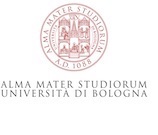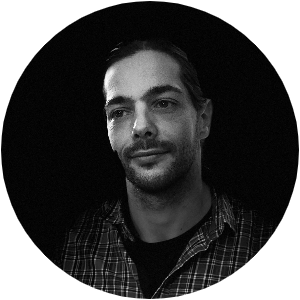 |
JASMINE IOZZELLI, AMEDEO POLICANTE, FEDERICO RAHOLA
|
|
|
The workshop will address some of the multiple, overlapping political processes and tensions investing sea space. In particular, it will focus on the relentless social production of the sea as a peculiar space of excess, rather than of exception: a global spatiality, which is endlessly crisscrossed and constantly reshaped by a heterogeneous set of economic processes, juridical and legal orders, as well as by contingent subjective practices and political events. From this standpoint, sea spaces might be conceived as the ongoing, unstable, and multi-scalar outcome of frictious relations between national and international, public and private, local and global actors. In turn, these frictions might be conceived as the very condition of possibility for the existence of multiple extractive sites for different operations of capital – by materially creating offshore and transit zones, by discursively projecting ambiguous legal regimes, by managing migration flow, by enclosing the maritime commons and altering the marine metabolism (by fishing/fracking/dumping etc.) While invested by an overall logistical rationale and governed as a space for synchronized flows, since the very beginning of political modernity the sea has primarily played as an unpredictable factor or a risky scene, and thus as an open-ended surface of routes, encounters, clashes, and crossing. Focusing on the tension between rationalized flows and unstable routes, the workshop will advance a conception of sea-space as a battleground. A liquid frontier in which different scales, actors, strategies, practices, and representations end up coalescing, overlapping and conflicting. The sea represents a peculiar and living archive inscribed by multiple routes and lines flights, currents and counter-currents. Historically, it is possible to recover and trace a specific maritime genealogy of different forms and political practices of insubordination and struggle: from piracy to mutiny, from desertion and runaway to strike. An historical analysis of these experiences return an image of the sea as a real “dockyard” of subjugated knowledges and practices that have materially touched the shores and politically influenced the land. Starting from the idea of “countercurrents”, the workshop propose to investigate the sea as a modern space of insubordination in which multiple forms of disobedience, reappropriation and mutiny have carved radical routes and counter-conducts. This will constitute the starting point to begin constructing a counter-map of current radical politics at sea. |
|
|
Ermenautica is a research collective "from the sea" and "on the sea". Based on a sloop navigating throughout the Mediterranean, the project pursues a cooperative research agenda that focuses on a multiplicity of maritime spaces understood as social, political and ecological frontiers in constant flux. Since 2019, our research has traversed the Tyrrhenian Sea and the central Mediterranean. It has also brought us on land, enabling us to discuss the perspectives that emerged from the encounter with different realities that inhabit these seas, through several cycles of meetings at the University of Rome, La Sapienza. Some of these reflections have now been published in two edited volumes: Ermenautica. Dai mari condivisi i segreti della convivenza (Prospero 2021); Radicalismo Marittimo (Prospero 2022, forthcoming). |
|
|
|
|
|
Amedeo Policante is currently a Research Fellow at the Institute for Marine Biodiversity of the University of Oldenburg, and at the Helmholtz Centre for Polar and Marine Research of the Alfred Wegener Institute. His research focuses on political geography, critical theory, and the history of political thought. He is the author of three recent monographs: The Metabolic Shift: Biopolitical Economies of Genomic Capital (Pluto Press, 2022); The Pirate Myth: Genealogies of an Imperial Concept (Routledge, 2016) and I Nuovi Mercenari: Mercato Mondiale e Privatizzazione della Guerra (Ombre Corte, 2013). |
|
|
Federico Rahola is associate Professor of Sociology of Culture at the University of Genova, where he teaches Cultural Processes and Theory of image. He is the author, among the others, of Zone definitivamente temporanee. I luoghi dell'umanità in eccesso (2003), Chi decide? Critica della ragione eccezionalista (Milano 2011, together with Massimiliano Guareschi) e Underground Europe. Lungo le rotte migranti (Milano 2020, with Luca Queirolo Palmas). |
|




 Jasmine Iozzelli is a PhD student in Anthropological Sciences at the University of Turin and has participated as a rescuer in several SAR (Search and Rescue) operations in the Mediterranean Sea with various organizations. Moreover, since 2019, she is part of the research group "Ermenautica-Saperi in Rotta" at La Sapienza University in Rome. Since 2019, first in the master thesis then in the doctoral path, she is investigating the specific dynamics that are given in the central Mediterranean in the encounter between migrants and activists, with particular attention to a "water-centric" point of view that investigates the sea as a specific ethnographic field. Some of the reflections have been published in "Leggere il mare: il Canale di Sicilia tra politiche e umanità naviganti" (2021, Prospero editore).
Jasmine Iozzelli is a PhD student in Anthropological Sciences at the University of Turin and has participated as a rescuer in several SAR (Search and Rescue) operations in the Mediterranean Sea with various organizations. Moreover, since 2019, she is part of the research group "Ermenautica-Saperi in Rotta" at La Sapienza University in Rome. Since 2019, first in the master thesis then in the doctoral path, she is investigating the specific dynamics that are given in the central Mediterranean in the encounter between migrants and activists, with particular attention to a "water-centric" point of view that investigates the sea as a specific ethnographic field. Some of the reflections have been published in "Leggere il mare: il Canale di Sicilia tra politiche e umanità naviganti" (2021, Prospero editore).
